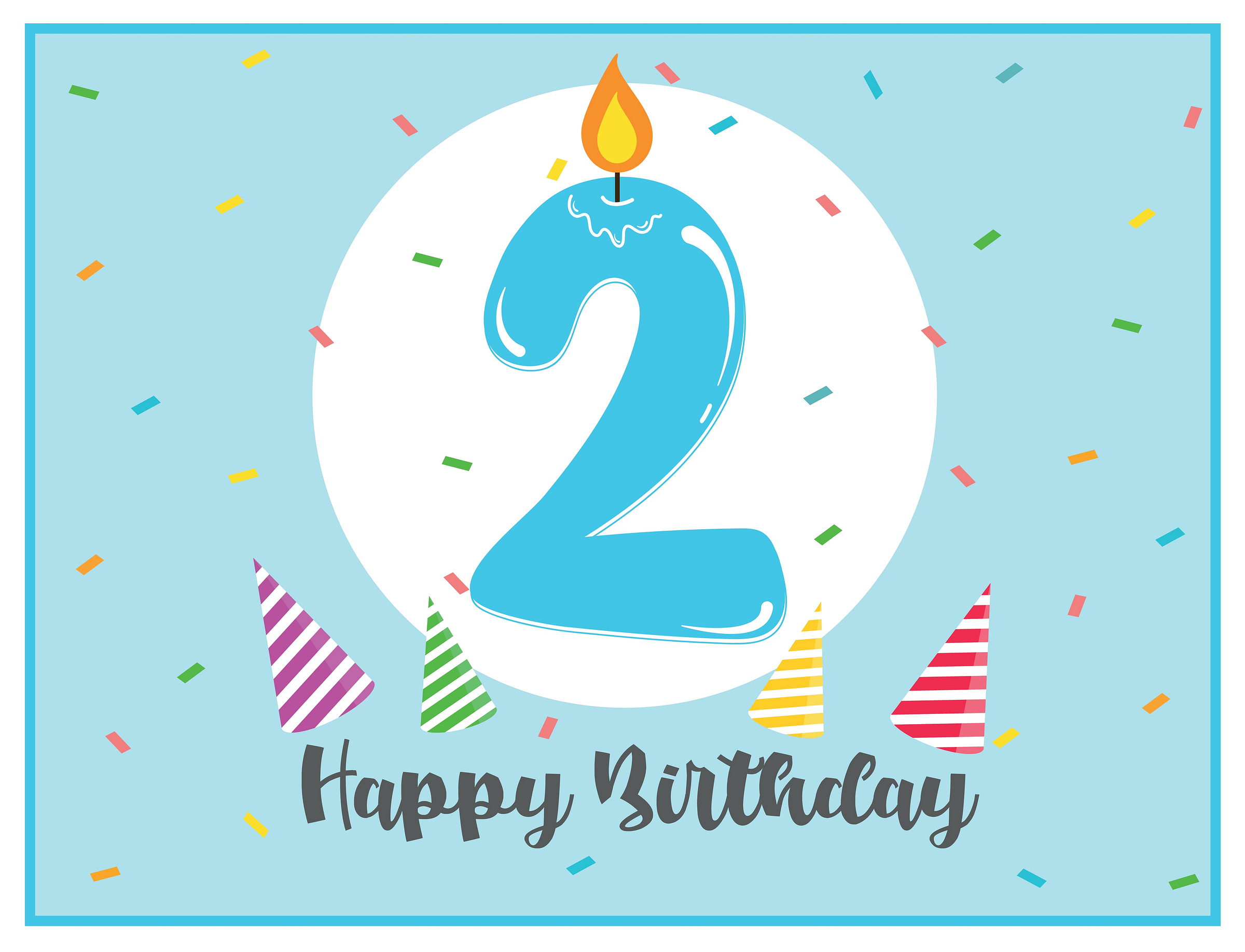Listen to Zooming In at The UnPopulist in your favorite podcast app: Apple Podcasts | Spotify | Google Podcasts | RSS
Aaron Ross Powell: Welcome to The UnPopulist Editor's Roundtable at Zooming In. I'm Aaron Ross Powell. It's our birthday. The UnPopulist is now in its terrible twos, and so today I'm joined by my colleagues Shikha Dalmia and Akiva Malamet to give a progress report on what we've accomplished in these last two years and where we see the current state of liberalism.
A transcript of today’s podcast appears below. It has been edited for flow and clarity.
Also our five favorite posts of the last 12 months.
Aaron Ross Powell: Shikha, why don't you take us away?
Shikha Dalmia: Thank you, Aaron. And thanks to Akiva and both of you for being here. It's an important milestone in The UnPopulist's life. As you mentioned, we are beginning our terrible twos, but I'm hoping that instead of throwing tantrums, we are going to make the “right kind of trouble” in the immortal words of John Lewis.
But to give our audience a bit of a progress report: Two years ago, The UnPopulist was founded with a singular mission, and that was to defend liberal democracy from the rise of the illiberal populist right. And it was going to do so by using classical liberal thought. Classical liberalism, in my view, and I think I can speak for the two of you, offers the richest intellectual resources to fight tyranny and authoritarianism in all its forms. And I felt like it was being completely underutilized, if not misused in many, many ways. And so the idea was to both defend liberal democracy and also kind of re-articulate classical liberalism itself to make it relevant for this new threat that we were confronting.
It was also my very firm belief that just like socialism in some ways was the defining threat of our times after World War II, this liberal populism of the right was going to be the threat of our generation or well, I'm very old, but future generations.
And why is that? In my view, populism in some ways, or illiberal populism, poses even a more fundamental threat to liberal democracy than socialism. And the reason is it kind of changes the relationship between the government and the governed. A liberal democratic framework is centered around the power of keeping political authority in check. And one crucial part of the check are the people. I mean, “throw the bums out” when they get too tyrannical. The premise over there is that people are going to guard their freedom. They are going to be a bulwark against authoritarianism and an authoritarian. But that changes in a populist framework where the people actually join forces with the strongman populist figure. And instead of guarding freedom, their motive becomes to use the levers of power to attack their political enemies. And so in a fundamental sense, the whole relationship in a populist polity between all the various checks and balances and institutions of liberal democracy kind of changes. And to me, there is therefore no greater threat to liberal democracy than populism.
“The premise over there is that people are going to guard their freedom. They are going to be a bulwark against authoritarianism and an authoritarian. But that changes in a populist framework where the people actually join forces with the strongman populist figure. And instead of guarding freedom, their motive becomes to use the levers of power to attack their enemies, their political enemies.” — Shikha Dalmia
And so with that understanding The UnPopulist, as the name suggests, was incubated at the Mercatus Center two years ago, and it was on a two-year grant. And after that, it needed a new home. And so I'm happy to report that even as our audience has grown, we started with 650 subscribers. We are nine times bigger now and growing rapidly every day. You guys have been an invaluable part of it. Aaron, you almost from the inception and Akiva, you a little bit later. And as we grew, we felt like we needed a new home and we've created one and it's called the Institute for the Study of Modern Authoritarianism — ISMA. It is no physical building, there's nothing bricks and mortar, but it's a platform which will give us an operational base to expand ourselves and our activities as we go forward. The UnPopulist, let me mention, is just going to be one element of this new center. We are going to do other things. We have a new editorial partnership with Persuasion which is an awesome sister Substack publication founded by Yascha Mounk, a Johns Hopkins professor. He comes from the progressive side of the spectrum and he's worried about some of the progressive excesses and threats to liberal democracy. So just as we, or at least I, see myself as an internal reformer on the right, he sees himself as an internal reformer on the progressive end of things. So we have a editorial partnership with Persuasion and we'll be promoting content and each other's work.
Another element of ISMA, the Institute for the Study of Modern Authoritarianism is going to be a polling project that Tom Shull, our editor at large, is launching to study the appeal of strongman politics in the United States. That's something that isn't very well understood or tracked. And we feel we should be able to pick up trends when people are getting more attracted to strongmen figure. And another element is going to be a liberalism conference. So our readers will be familiar with the national conservative movement and other illiberal movements on the right. And they host their own conference every year. And we think we need a conference to make a strong and strenuous and vigorous case for liberalism.
In the last two years since The UnPopulist was founded, I don't think our work [load] has diminished. I think it's actually increased because the state of the world has become, in my view, decidedly worse.
Here in America, the Republican Party seems to reach new lows every few weeks. Jan. 6th was not a shocking enough event for the party and it didn't awaken it. After the event, Trump is still the favorite to win the nomination of the party. There are 91 indictments against him and instead of being embarrassed, the Republican Party seems to think that the problem is actually with the system that's trying to hold a rogue president accountable. You know, it's been the law and order party all this long except for when it applies to its own favorite politicians. Even if Trump were in jail, that would not necessarily be a barrier to his election.
But if he were to somehow not be the nominee, the two people who are waiting in the wings are Florida Governor DeSantis and neophyte Vivek Ramaswamy. And both of them represent two different styles of populism within the GOP. De Santis has this nasty statist side where he wants to use the government to rain terror on his woke political opponents. And Vivek Ramaswamy has a different, what I call, paleo-libertarian style of populism where he wants to selectively withdraw agencies and curtail the federal government to hurt his political opponents. Now, many of us are not opposed to reducing the size of the federal government, but the selective way in which he [Vivek] wants to do it to promote right-wing causes and diminish left-wing causes is very concerning. Add to that his kookiness and his conspiracy theory mindset, and his border hawkishness. And he is in my view and reincarnation of Ron Paul in many ways, who, the difference is that Ron Paul was an outlier when he ran in the Republican party, whereas Vivek Ramaswamy in fact speaks for the party.
Meanwhile, if you look at, look around the world in India, my home, my native country. Modi, Narendra Modi, a Hindu nationalist and a strongman, populist figure, is a hands down favorite to win elections again for the third time next year. And then if you go around the rest of the world, things are not looking a whole lot better. In Turkey, Erdogan won again, even though the opposition put up a pretty valiant fight. He still prevailed and everybody now thinks Turkey is on sort of an irreversible path to certain kind of religious illiberalism. Gone are its secular commitments.
And then if you go down the list, whether it is Italy, it is Hungary, Poland, the same thing is happening. In Germany, the Alternative to Germany which is a far right outfit, is the second largest party. It may well be in the governing coalition in the next elections. In France, even though Emmanuel Macron [who is considered a moderate] won, he's now in trouble and the National Rally and Eric Zemmour, two very far right figures, are gaining ground. In Italy, you have Giorgia Meloni.
And to me, the most ominous sign that things are on a very bad track is that the European Union itself seems to be succumbing to far-right priorities and policies. Take its position on immigration. I mean, we care about immigration, but it's also sort of a bellwether issue. And the European Commission, which used to be very opposed to stiff border controls around Europe, has now succumbed. Its [annual] border control budget, just to throw out one figure at you, has increased from $85 million to $754 million in less than a decade. Whereas earlier it used to talk about how we don't need to control Europe's border, now they are talking about “collective border security” and are doubling down on it. Given all these trends, I think The UnPopulist and ISMA have their work cut out for them. And so we are going to be doing this over the next few years and hopefully getting more support from our audience and our viewers and everyone else.
Akiva Malamet: So I really appreciate what you said there, Shikha, and I think particularly the international focus that The UnPopulist takes is a unique emphasis in combining focus not just on America and on the West, but on the world in general. One country that wasn't discussed as much in your catalog of horrors is Israel. And I think of Israel as quite an important country because it serves as a kind of cultural social bridge between the West and the East. It has elements of both Eastern and Western culture within it. And geographically as being on the Mediterranean, it serves that function as well.
The shift in Israel towards where very worrying judicial reforms in which the far right in Israel is essentially attempting to hobble the power of the Supreme Court and the Supreme Court's ability to protect its citizens from majoritarian rule and from authoritarian attempts to remove women's rights, remove LGBT rights, to install — a wish, I think, of a less likely but still consistent wish for part of Netanyahu's coalition — is to install a theocracy in Israel, although I see that as a little bit less likely. And all of those pieces are coming together to make Israel, which was historically considered a great American ally and a great sign of democracy in the Middle East, Israeli democracy is no longer looking quite as good and in fact may be crumbling in some very critical places.
The installation of the first line of these judicial reforms, which was getting rid of the reasonableness clause, is now undergoing hearings by the Supreme Court. We will see whether the Supreme Court allows for and passes something to amend its own power, and whether they will consider that legally valid or not. I think the reasonableness clause is a fairly minor clause because it's an administrative declaration that says that you can't pass certain laws that don't take account of certain reasonable variables. So for example, the reasonableness clause was used to get rid of people from being ministers who had been indicted for corruption. So Aryeh Deri, the minister from the Shas party, which is the Sephardic ultra-Orthodox party in Israel was removed from his post and being minister because he had served time in jail. Those kinds of considerations that the reasonableness clause is meant to curtail to prevent corruption in government.
And so while it's a relatively minor clause, there are other ways to prevent corruption in government. There are other powers that the Supreme Court has of judicial review. It represents a significant move towards curtailing the power of the Supreme Court, both to uphold good standards and best practices in government and prevent corruption. But also to be able to balance the power of the Knesset, the parliament, against the framework, against the protection of individual rights. It's important to remind people that Israel, which has no formal written constitution, is dependent on the Supreme Court to protect the liberties of citizens, which it does through its interpretation of the Basic Laws, which declare certain fundamental rights but are not themselves equivalent to a constitution. Absent these judicial review powers, there really is no block or check and balance to the power of the Knesset to enact all kinds of majoritarian tyrannies that severely violate the rights of Israeli citizens as well as Palestinians. And so the judicial reforms, as I see them, are a significant blow to one of the more important democracies in the world today.
Shikha: Thank you for correcting my omission over here. Israel is obviously a super important country for both geopolitical reasons and as well as, as you mentioned, an important liberal democracy at least. Some of us think it's liberal enough that we should be worried about its more draconian turn. But one of the things I want to emphasize is that this is — sometimes when we talk about liberal democracy, it sounds arid. It sounds very abstract, but it has actually like real consequences on real people. And it's not simply about, in Israel, for instance, it's not simply about things like judicial review and curbing the power of the executive, all clinical terms. It has impact on the, you know, on human rights, right? I mean, the Palestinian fate to some extent depends upon what happens in Israel. The Muslim faith in India depends upon whether the Hindu nationalist government is able to run roughshod over them. And so when we talk about liberal democracy, it's not simply about maintaining a system, it is about maintaining a system that protects life and liberty of actual, breathing, living human beings. And that's kind of why to me it's such an important cause. You know, if liberal democracy fails, it's not just going to fail and be replaced by something else that's less good. There will be many lives destroyed, decimated, and major upheaval if we don't get things back in order.
“When we talk about liberal democracy, it's not simply about maintaining a system, it is about maintaining a system that protects life and liberty of breathing, living human beings. And that's kind of why to me it's such an important cause. If liberal democracy fails, it's not just going to fail and be replaced by something else that's less good. There will be many lives destroyed, decimated, and major upheaval if we don't get things back in order.”
— Shikha Dalmia
Aaron: Yes, that's absolutely critical. So I'll just quickly say it has been, it's been a real privilege and honor to get to be a part of this project for the last couple of years. And I think I agree with everything that's been said that the mission of The UnPopulist mattered a lot when it launched. It matters at least as much now in part, because I think that a lot of the threats to liberalism have become in many ways more subtle and easier to ignore, easier to dismiss. I think probably in my mind, and maybe I'm being naive about this, but I think that the immediate threat of Donald Trump himself has lessened a lot compared to where it was two years ago. I think the path to reelection for him is exceedingly narrow if not effectively gone, barring extraordinary circumstances. I just don't see a way that he wins back the suburban white voters who flipped to Biden after everything that's been happening in the indictments and all of that.
And I think that a lot of what we've seen is electorally a lot of the really hardcore of Trumpism doesn't seem to do very well at the national level. DeSantis, even if he won the nomination, I don't think would would win the presidency because he's just not terribly popular. He can't even beat out the kind of rando Pharma bro who's running against him in the primaries. So at the national level, that kind of real Trumpism was, I mean, was never popular, it never got majorities. It seems to be less so now, especially as it becomes more shrill. But the threats, as I said, have become more subtle.
And so one of the things that really worries me is threats to liberalism from within the liberal coalition. And a lot of that is the way that the pivot to the culture war being the dominant force in American politics, that we don't really argue so much over policy anymore, or policy is not centered in our political debates. To the extent that it used to be, it is now culture war issues that dominate the conversation. And the real extreme versions of the right's views on the culture war are not, again, terribly popular. They don't have widespread purchase and that shifting as demographics and particularly age demographics change and so on, like which generations are ascendant and which are shrinking.
One of the things that really worries me is the way that edge concerns in the culture war are getting used as justification for kind of broader reactionary attitudes that were present in the larger liberal coalition, but were kind of kept on the down low. And so we're seeing this in reactions to LGBT rights or trans rights where people will point to smaller issues, women's sports, or some kids getting certain kind of medical interventions, and use that as a way to broaden out a critique of essentially the dynamism of culture and privileged groups, underprivileged groups becoming more privileged, formerly heavily privileged groups maybe dropping in their privilege. Cancel culture concerns are also this way. We see a lot of, there are genuine instances of like cancel culture run amok. But often what you see is concerns about that providing cover for general concerns of like people with higher status not really liking it that kind of the lower status people are now challenging them, pushing back on their ideas, that they're not as centered in the conversation as they used to be. And what I think a lot of this has exposed is that even in the broader liberal coalition, there's always been a tension between conservative values and the social dynamism that is a necessary part of a liberal society or a necessary consequence of a liberal society.
“Edge concerns in the culture war are getting used as justification for kind of broader reactionary attitudes that were present in the larger liberal coalition, but were kind of kept on the down low. And so we're seeing this in reactions to LGBT rights or trans rights where people will point to smaller issues, women's sports, or some kids getting certain kind of medical interventions, and use that as a way to broaden out a critique of essentially the dynamism of culture and privileged groups, underprivileged groups becoming more privileged, formerly heavily privileged groups maybe dropping in their privilege.”
—- Aaron Ross Powell
And so I think that's where we really need to maintain a check on taking concerns seriously, but not allowing them to provide cover for basically, “I'm in favor of liberalism as long as it doesn't like destabilize my own position, my own status, my own prestige, my own preferences,” because as you said, we can talk about these things in this clinical sense of the function of various institutions and the laws that govern them or the laws by which they govern themselves, but ultimately this is about people. It's about their lives and the reason that liberalism matters.
The reason that I think all three of us have dedicated our careers to defending and advancing it is because it is the best system that we have found yet for enabling diverse dynamic people to not just live together in peace but live together in mutually beneficial ways. But that cuts against these natural tendencies for hierarchy and class. And categorizing people and then seeing their dignity as of differing values depending on where they fall into these categorizations. And, and that's been the challenge liberalism has faced since it started, is liking it in the abstract, but then disliking it when the kind of the effects of freedom become real to us. And so that's where I think the tremendous value of The UnPopulist is in making those values clear and defending them and calling out where they're in retreat, especially as it moves into the less cartoony flamboyant threats of a Donald Trump and into what I see as these more subtle avenues for backsliding into particularly kind of social illiberalisms and then the inevitable political illiberalisms that follow.
Shikha: Aaron, I couldn't agree with more in a very fundamental sense about the value of liberalism and what we are fighting for here. But I would say that precisely because of some of what you said, I'm less sanguine about the threat that Donald Trump and the Republican Party pose even now. Part of what we are seeing right now with the rise of the illiberal populist right in the United States especially is that the gains of the civil rights and the women's movement are only beginning to be felt now when these groups have started moving into positions of power. And they don't believe that the previous norms of patriarchy and a certain kind of white articulation of the world work for them anymore and they are demanding change.
Now as they demand change, these things never happen neatly. There are going to be excesses, which is why I appreciate what Yascha Mounk is doing and Persuasion are doing. There will be excesses. But the backlash from the right is far bigger in my view than the excesses on the left. And that backlash is not going to be contained anytime soon. What's spooky to me is that the Republican Party has not, like I said, woken up from its Trumpist stupor yet. That fever is still continuing to, if not grow, but retain its hold on the Republican brain. But look at the new populist figures that have emerged in the GOP. Vivek Ramaswamy, he's a double Ivy Leaguer and yet he issues purple condemnations of the elite. But he he’s a practicing Hindu and he's a son of immigrants. And yet, there is a certain political entrepreneurship that this Trumpist style of populist politics has opened, which is going to continue to play out in the Republican Party.
And when you have a duopoly, when you have a country with only two parties, when one party is in such a bad place, it can continue to pull down liberalism in many ways. And I would have to say that, you know, Democrats, the rap against them is that they are too much in the pockets of progressives, right? And they're allowing the extreme progressives to set the agenda for the party. My opposite fear, as yours, is that in response to this backlash from Republicans, Democrats will actually succumb on their commitments to defending minority groups. I don't think that has happened yet and I think they are not doing it smartly. I think they do need to listen to concerns about the other side—and at least remove some of the obvious causes. On those grounds where the backlash is justified, they ought to keep that in mind, but they have to do it in a way that doesn't weaken their commitments to the little guy, to the underdog. If Republicans continue to make political gains the way they are doing, I think Democrats may well follow suit just to keep themselves politically relevant.
“My opposite fear, as is yours, is that in response to this backlash from Republicans, Democrats will actually succumb on their commitments to defending minority groups . I don't think that has happened yet and I think they are not doing it smartly. I think they do need to listen to concerns about the other side and at least remove some of the obvious causes. On those grounds where the backlash is justified, they ought to keep that in mind, but they have to do it in a way that doesn't weaken their commitments to the little guy, to the underdog.”
— Shikha Dalmia
Akiva: So I really appreciated, Shikha, what you said about this being, to some extent, the coming to fruition of certain liberation movements. And so we're seeing a backlash as a result of this dismantling of patriarchy, the dismantling of prejudice against LGBTQ people and so on. And I think this speaks to a fundamental impetus in liberalism, which is that nobody's free until everybody's free. And the move within liberalism to be continually looking for who are the edge groups, who are the groups that are not yet in our circle of equality, who are not yet in our circle of liberty, continues to create backlash. I always think it's interesting that you have periods of liberalization followed by a backlash. You have the Me Too movement and then you have Trump in a chronologically related section. Similarly, you have a lot of the accomplishments in the original classical age of fascism. You had all these feminist accomplishments of the 1920s that were then followed by the age of fascism. And you had a thriving gay scene in Berlin that was then followed by fascism, in the 1920s. And so, in a way, this illiberal populism is predictable because there's always a response to the status of some groups being disrupted in society because other groups are demanding their place at the table. But the fact that backlash is almost inevitable shouldn't give us cause for despair, rather it should give us reason to be aware of what will happen culturally and to find the resources to push back against it.
“I think this speaks to a fundamental impetus in liberalism, which is that nobody's free until everybody's free. And the move within liberalism to be continually looking for who are the edge groups, who are the groups that are not yet in our circle of equality, who are not yet in our circle of liberty, continues to create backlash…illiberal populism is predictable because there's always a response to the status of some groups being disrupted in society because other groups are demanding their place at the table. But the fact that backlash is almost inevitable shouldn't give us cause for despair, rather it should give us reason to be aware of what will happen culturally and to find the resources to push back against it.”
— Akiva Malamet
Aaron: And that's where we can get back to, I think, the clinical, institutional side of things. I think liberalism at its core is a set of social values about how we view each other and our interactions with them and what it means to live together in beneficial peace. But if there's this baked in cycle of, some people are more committed to that vision than others, and some people are committed to it so long as it doesn't mean things get too weird for them, and then they have the backlash, or their status lowers, and then they have the backlash. That's where protecting these institutions, which has also been a big part of The UnPopulist's mission, because those liberal institutions exist to essentially defang those inevitable backlashes that people can get — they can get frustrated about changes in the world around them.
They can not like it that their town looks different today than it did when they were kids or that popular music sounds funny or there's these people who speak foreign languages or the children are up to weird playing with their identities that makes me a little uncomfortable. We can't undo that, but what we can do is ensure there are political institutions that can't be co-opted by the backlash in order to advance actual political oppression in order to stop it. That instead they can kind of rage against it, or they can use their associational rights to find parts of the country that were better reflect their values or whatever. But what we saw with Trump and the ongoing threat is that if liberal institutions aren't strong, the backlash can grab the mechanisms of power, can grab the very heights of power. And then, fortunately, Trump turned out to be wildly inept in doing it, but can attempt to re-oppress the people who liberalism is freeing, re-marginalize the people that it has unmarginalized. And that's where I see, if we can't, that the link between social values and the institutions and the need to keep an eye on both.
“What we saw with Trump and the ongoing threat is that the backlash can, if liberal institutions aren't strong, grab the mechanisms of power, can grab the very heights of power. And then, fortunately, Trump turned out to be wildly inept in doing it, but can attempt to re-oppress the people who liberalism is freeing, re-marginalize the people that it has unmarginalized. And that's where I see, if we can't, that the link between social values and the institutions and the need to keep an eye on both.”
— Aaron Ross Powell
Shikha: Yeah, just to add to that, Aaron, you know, what spooks me about this backlash is precisely its attack on liberalism, right? The populist right understands that the impediment to its designs to roll back the clock is precisely liberalism, because groups that have now been empowered can fight back. You know, they can use those same institutions and those same rights to fight back and maintain their gains. So the reversal of those gains requires precisely attacking liberalism. It is not a coincidence that Trump called the press the enemy of the people and attacked the background of a Mexican judge who felt he wouldn't rule in his favor for his fake university. And so that's why the backlash is so dangerous.
A lot of my conservative friends who are not even part of the Trumpist right, they've catastrophized the left so much. Their argument is that the left controls all the commanding heights of the culture and American society and so, to take back those heights, we can't play by the normal liberal rules. We've got to play by some other illiberal rules is very much part of the right. The only thing I would exhort the left to do is that as it pushes back against the right is to defend the gains for marginalized groups, as you mentioned Aaron, was [not to] claim innocent victims. The left overplayed its hand in that [it applied] coercive or punitive strategies with people who could be better reached by persuasion.
Before Trump came on the scene a liberal professor wrote a piece anonymously in Vox about how his liberal students terrify him because you know, anything he says in class, no matter how innocuous, can and will be used against him, if it doesn't somehow advance their agenda or it ruffles some feathers. But there was already a corrective current in our politics against that. And we could have come to a pretty good place where we advanced more rights for more people while preventing innocent victims of that particular cause.
But the right came along the scene and it doesn't want to have anything to do with these corrective mechanisms. It's in it for the power and when one side becomes so wholly devoted to using the levers of power to advance its agenda, it's not inconceivable that the other side will also do the same at some point. I think for the center left side of the spectrum there are two dangers it has to worry about. One, it has to worry about imbibing too many of these sort of regressive right-wing policies and agenda and giving up on some of its progressive causes. On the other hand, it may also succumb to the twin temptation of just simply seeking power to advance its agenda and forgetting about liberalism. So all of that is kind of part of the mix in our very fluid tumultuous political world. And now The Unpopulist firmly believes that at this moment in time, the right is the far bigger threat than the left. The left is a mixed bag, it has some good causes, but its means are occasionally questionable. But liberalism could have handled that. But we will also occasionally keep an eye on that kind of stuff.
“I think for the center-left side of the spectrum there are two dangers it has to worry about. One, it has to worry about imbibing too many regressive right-wing policies and agenda and giving up on some of its progressive causes. On the other hand, it may also succumb to the twin temptation of just simply seeking power to advance its agenda and forgetting about liberalism. So all of that is kind of part of the mix in our very fluid tumultuous political world.”
— Shikha Dalmia
Akiva: I really appreciated what you said there, Shikha, especially about the value of protecting liberalism as an institutional framework. Speaking to the mistakes made by the left as it tries to oppose the right, one of the things that gets underappreciated is the mistake of conflating democracy and liberalism with each other. And often there's this idea on the left that if we failed to protect our values, it's because the people weren't really speaking. Were misled and needed to be guided by us instead of by some other force. We don’t want democratic fundamentalism and we also don't want to have a kind of protection of rights with or without any response or check and balance with respect to democratic accountability. But it's important to recognize that rights need to be protected independently of whether or not they're democratically sanctioned. And this is also a really important time for the left to double down on some of the things that maybe it's become a little softer on in comparison to how it's been historically, such as free speech when you decide that an institution can be manipulated for your own end…So for example, the expansion of let's say, different things to the category of hate speech or incitement, those same instruments can be used by the right to manipulate and then go after let's say, Disney's woke behavior becoming a problem for the discourse just as much as whatever the left may perceive to be a problem in terms of hate speech. And so there's an important need to not let whatever “the people” want become the equivalent of a liberal society. And there's also a need to defend liberal institutions because more often than not, someone that you don't like is going to then be in charge of them if you start to abandon those principles.
“There's an important need to not let whatever “the people” want become the equivalent of a liberal society. And there's also a need to defend liberal institutions because more often than not, someone that you don't like is going to then be in charge of them if you start to abandon those principles.”
— Akiva Malamet
Shikha: I'm actually curious as to what, Aaron, you think about what Akiva just said. You feel passionately about trans rights, right? And so the question is, what are the legitimate means to advance those rights? What are the limits? Is using the power of the state to advance them acceptable? Are there means that trans activists have used to advance their rights that would give us pause from a liberal framework? What are the limits for advancing any crusade for anybody's rights?
Aaron: There are always limits. We could certainly draw them at, “don't advance your rights in a way that violates the rights of others who aren't themselves violating yours.” So what I mean by that is say, in the abolitionist movement, anti-slavery, was clearly about advancing a set of rights that were being heavily violated, like absolutely violated. And that entailed often doing violence to slaveholders, taking away what they wrongfully imagined to be their property and so on. I don't see that as “don't violate others' rights when advancing your own” limits, clearly. But you can certainly, in trying to move yourself from the margins more towards the center of society in trying to undo oppression, it is possible to do that in ways that are rights violating to others. You know, appropriating their rightly held property, which is a fairly common thing. We’ve gotten our power back, now we're going to seize everything from everyone who's we see as wronging us. But I don't see that really playing out much in the current situation.
I mean, one of the interesting things about the trans rights concerns right now is this isn't actually an example of a group of people suddenly using the power of the state to rapidly advance their interests. Rather, most of the rights that we talk about now, that trans people are worried about losing are things that they've had for quite a long time, that the state has protected for quite a long time. And what's happening now is a rolling back, an attempt to roll back existing rights. They're not claiming a whole bunch of new ones. Rather, these were things that they had been doing forever. And suddenly it became, especially with the shift to the culture war, the victory of gay marriage. And so the need for it accelerated after changes in abortion and that becoming not the kind of driving thing that was motivating the right. The culture warriors on the right looked for a new thing to rile up, and we have Chris Rufo explicitly saying he's doing this. And then targeting this group that no one had really been concerned about. There hadn't been worries about any of this stuff until people decided it was a big problem. And now you see scaling back of it.
“One of the interesting things about the trans rights concerns right now is this isn't actually an example of a group of people suddenly using the power of the state to rapidly advance their interests. Rather, most of the rights that we talk about now, that trans people are worried about losing are things that they've had for quite a long time, that the state has protected for quite a long time. And what's happening now is a rolling back, an attempt to roll back existing rights. They're not claiming a whole bunch of new ones. Rather, these were things that they had been doing forever.”
— Aaron Ross Powell
So I don't see a lot of this as over-exertion in terms of claiming new rights and privileges, but rather, please stop taking away the ones that we have had and then being very vocal in demanding that they not be taken away. But I think, to Akiva’s broader point. Yes, there is a need to distinguish democracy and liberalism. They are obviously very interrelated. Democracy is the best system that we have found for achieving and maintaining liberalism compared to institutional alternatives that we've seen in practice. Democracy also is a system that really puts at its core the equal dignity and participation of all citizens, except in those times when democracy tries to deny some citizens' democratic participation. But it is absolutely the case that majorities can be illiberal, and majorities can disrespect rights, and majorities can want to see underprivileged people remain at the margins of society. And so we need to be careful to not see majority rule, democracy as majority rule as synonymous with liberalism, but rather liberalism is a set of values that will inform what the majority sees as its goals in the political sphere.
And so I think If we're gonna look forward to, how do we defend this thing we call liberalism, this thing that The UnPopulist has spent the first two years of its life defending and, and we'll spend the next many, many years continuing that fight. For me, a lot of it is keeping an eye on the ball when it comes to those values and keeping an eye on who is actually advancing them and who isn't and not allowing these subtle forms of illiberalism to gain purchase and respect and prominence within circles that ought to know better. But instead to call them out, even if it means, and this is, we've all been through this, even if it means calling out our friends and our allies, people that we have associated with.
Because illiberalism is not concentrated among people who just wear hats that say, I am illiberal, but it's been a constant presence throughout the history of liberal democracies. It's always pushing back. It's always coming from every direction. Liberalism has been fighting against illiberalism as long as it's been around. And, so paying attention to that and asking ourselves, if I'm caught up in, oh, here's an instance where liberalism has gone too far, here's an instance where the behaviors become dangerous to it or corrosive of its values to really put effort into thinking about what's driving those motivations. And is it just cover for of reactionary preferences or is there something genuine there and then stand our ground when it comes to talking about those values and fighting for them.
Aaron: Thank you for listening to Zooming In at The UnPopulist. If you enjoy this show, please take a moment to review us in Apple Podcasts. Also check out ReImagining Liberty, where I explore the emancipatory and cosmopolitan case for radical, social, political, and economic freedom. Zooming In is produced by Landry Ayres and is a project of The UnPopulist.
Here are our favorite pieces from the past year. Tell us yours in the comments:
“Jordan Peterson: Putin's Useless Idiot”
by Tom Palmer
“A Typology of the New Right”
by Shikha Dalmia
“Israel's Internal Divisions Are Its Mortal Enemy Now”
by Akiva Malamet
“Joe Biden and Walter Russell Mead Deserve an "F" on India”
by Salil Tripathi
“How to Defuse Nativism in America: An Interview with Justin Gest”
by Aaron Ross Powell
© The UnPopulist 2023
Follow The UnPopulist on Twitter (@UnPopulistMag), Facebook (The UnPopulist) and Threads (@UnPopulistMag).

















